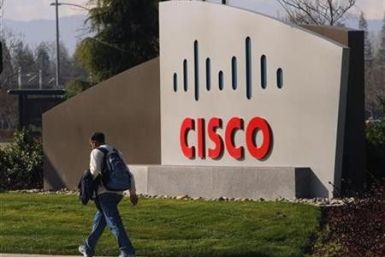China understands a stronger yuan is in its best interest although President Hu Jintao made no specific commitment to let the currency rise more rapidly, U.S. Vice President Joe Biden told Reuters on Thursday.
Stocks closed modestly lower, but well above intra-day lows, as the tech sector incurred the heaviest losses on fears of Chinese interest rate hikes.
Chinese President Hu Jintao on Thursday called for closer U.S.-China cooperation on economic and security issues, especially in the Asia Pacific region where both countries have strong interests.
For Jeff Immelt, the CEO of General Electric (GE.N`), the 130 year-old American industrial behemoth, the financial crisis marked the end of the age of America's economic dominance.
Wall Street banks are not taking the kind of big risks they did in commodities just a few years back, even after one of the biggest commodities rallies in two straight quarters since the 1970s.
Stocks fell on Thursday as lackluster tech and materials earnings failed to live up to heightened expectations, threatening to short-circuit a seven-week run.
Cybercrime has evolved beyond targeting Windows as it moves into smartphones, tablets and mobile platforms.
Reports that some financial institutions have started to exit their gold positions have been circulating this week, says French bank and London bullion dealer Natixis in its latest commodity analysis. Physically-backed ETF trust funds shrank almost 1% this week on Natixis' data - the sharpest weekly drop since we started keeping records in 2008.
Just one day after signing a huge contract to sell aircraft to China, Boeing (NYSE: BA) said it will lay off about 1,100 U.S, workers involved in the manufacture of its C-17 military-cargo aircraft through the end of next year.
The Dow and S&P were flat on Thursday while the Nasdaq slipped as investors paused to digest corporate earnings against raised expectations in a market many analysts viewed as extended.
Japan's NEC Corp and China's Lenovo Group Ltd are in the final stages of talks for a tie-up in the personal computer business, the Nikkei business daily said.
U.S. home resales jumped more than expected in December and claims for new jobless claims last week posted their biggest decline in nearly a year, showing two key economic trouble spots on the mend.
Wall Street fell for a second day on Thursday as earnings failed to live up to lofty expectations and investors booked profits in a market extended by weeks of gains.
South Korea agreed on Thursday to a North Korean offer of high-level military talks, a major breakthrough in the crisis on the peninsula which improves the prospect of renewed aid-for-disarmament negotiations.
Iran said it had no fresh offer to make to revive a nuclear fuel swap proposal but was ready to discuss it in talks with world powers on Friday, and Russia said ways of easing sanctions on Tehran should be addressed too.
President Barack Obama urged Chinese President Hu Jintao to let the value of China's yuan currency rise and delivered a strong message on U.S. concerns over Beijing's human rights record at a summit on Wednesday.
U.S. stocks fell on Thursday led by losses in the technology sector and on worries that China's rapid growth may lead to more aggressive measures to tackle inflation.
Chinese President Hu Jintao is meeting with Congressional leaders on Thursday, with discussion of the yuan on the agenda.
Wendy's/Arby's Group plans to sell its struggling Arby's roast beef sandwich chain to focus on the Wendy's hamburger business, which top shareholder Nelson Peltz expects to be the company's engine of growth.
Gold fell like a stone on Thursday, following three days of gains, and ignored a recovery in the euro as investment demand waned. Spot gold fell over $20 to $1,348.55 an ounce by 1426 GMT.
Forcing banks to lock up more cash is China's most viable policy option for now as it battles inflation, though that won't shut the door on higher interest rates and faster rises in the yuan.
Stocks fell on Thursday led by losses in the technology sector and on worries that China's rapid growth may lead to more aggressive measures to tackle inflation.


















